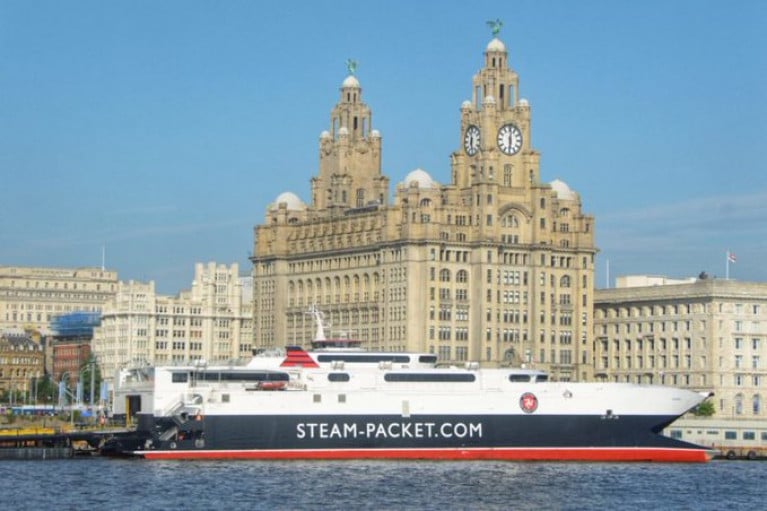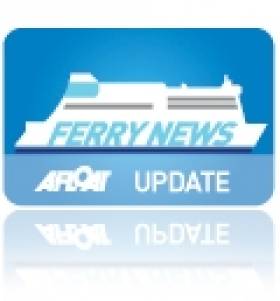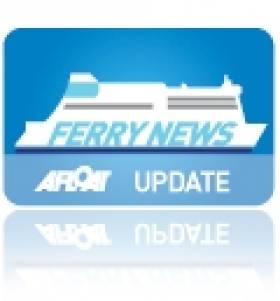Displaying items by tag: DouglasLiverpool
Hopes for 'Year-Round' Operated Isle of Man-Liverpool Service
Once the new £70m ferry terminal in Liverpool Docks is in operation, it is hoped the Isle of Man Steam Packet can put on a year-round operated service between Douglas and Merseyside.
The Steam packet’s fast-ferry Manannan currently does not take passengers to Merseyside during the winter months. However, the 865 capacity craft did receive some modifications to allow it to berth at the new site when trails took place last month at the Princes’ Half-Tide Dock facility.
In the meantime, the latest business plan of the IOMSP shows it doesn't expect the 1998 built / 200 car capacity fastcraft, will be replaced before 2030.
As ManxRadio reports, there are questions that still hang over as to when the new terminal in the northwest of England port will be in operation, with a number of recent deadlines for opening missed.
A committee was told by the IOMSP’s Managing Director, Brian Thomson on what's expected once the new terminal is ready to welcomes passengers (to listen, click station's audio link).
The MD said that the operation of a high-speed catamaran is perhaps not the best option going forward.
Noting, last week the Packet Company confirmed that the Manannan had been damaged during a very rough crossing from Liverpool to the Isle of Man, for more the radio station also has the story here.
The Manx Government has lowered its coronavirus alert level meaning the fast (ferry)craft Manannan can resume sailings between Liverpool and the Isle of Man
As Liverpool Business News reports, fast craft sailings between the England and the Isle of Man will resume this week – but only for residents of the island.
In March the Isle of Man Steam Packet Company halted sailings, which can be up to twice a day during the peak summer months, as the island looked to protect its residents from the spread of coronavirus.
Since March there have been 336 confirmed cases of COVID-19 among the Isle of Man’s population of around 84,000 people, with 312 recovering and 24 deaths. There has been no new confirmed cases on the island for more than 50 days.
From Monday, July 20, the Manx government is moving its alert level from 5 to 4 which means residents will be allowed to visit the UK and beyond for holidays or to visit friends and relatives before self-isolating for 14 days on their return.
Although the Steam Packet Company rescheduled its timetable in late March, it has continued to operate daily services between Douglas and Heysham, including an overnight lifeline freight service.
For further reading click here
Liverpool-Isle of Man Fast-Ferry Set to Spring Into Action
#MerseyFastFerry – The recent return of the Manx-Merseyside fast-craft car-ferry, Manannan alongside to Liverpool Landing stage marks preparations to the 2014 seasonal service between the city and Douglas, writes Jehan Ashmore.
Operated by the Isle of Man Steam Packet Company, Manannan, which had spent a winter lay-up in Liverpool docks, is to reopen the route this Friday (28 March). The inaugural sailing departs Douglas at 07.30 and for further information sailings and other routes visit the link HERE.
A UK-Manx service was in operation during the winter months on the Douglas-Birkenhead link. The ferry terminal of Twelve Quays in Birkenhead is located facing Liverpool on the opposite side of the River Mersey.
The Birkenhead-Douglas route had been served by conventional ro-pax ferry, Ben-My-Chree which in tandem also ran sailings to Heysham, from where the vessel continues to operate on the company's second Isle of Man-England route.
Plans for Wind-Farms Won’t Affect Manx Ferry Operator
#MANX FERRY – The IOM Today reports that the Manx Government is drawing up plans to ensure that any wind-farms built within the waters off the island would not affect ferry routes.
Work on the Isle of Man Marine Plan is under way and the Department of Environment, Food and Agriculture's director of environment Martin Hall said it was important it was completed in a 'timely manner'.
One of the plan's objectives would be to identify current activities in Manx waters and safeguard their ongoing use. Mapping the location of navigation corridors, important natural areas and pipelines/cables will enable the island to identify potential wind farm sites that will not adversely affect current uses of the Manx marine environment, including ferry routes and fishing.
The comments come following criticism from the Isle of Man Steam Packet Company over Centrica's plans for a wind farm in the Irish Sea, outside Manx waters. The Steam Packet says that Centrica plans to develop in the path of two routes: Douglas-Liverpool and Douglas-Heysham, in spite of complaints from the ferry operator. For much more on this story click HERE.
































































